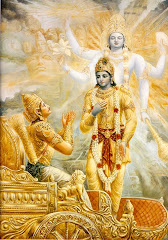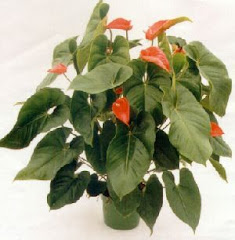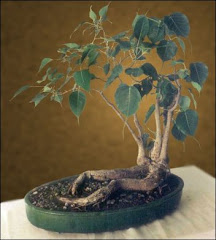Onto my third Jeeves and Bertie novel, this one is titled:
Right Ho, Jeeves.
It is a Jeeves novel by P.G. Wodehouse, first published in the United
Kingdom on October 5, 1934 by Herbert Jenkins, London, and in
the United States on October 15, 1934 by Little, Brown and Company, Boston,
under the title: Brinkley Manor. Before being published as a book, it
had been sold to the Saturday Evening Post, in which it
appeared in serial form (from December 23, 1933 to January 27, 1934), and in
England in the Grand Magazine, from April to September 1934.
Right Ho, Jeeves is mostly set in Brinkley Court,
the home of Bertie's Aunt Dahlia. She is his favourite aunt. That the French culinary virtuoso,
Anatole, is her resident cook and rustles up culinary (fork-and-spoon-licking)
delights several times a day, contributes handsomely towards Aunt Dahlia
retaining her position as Bertie's numero uno aunt. [She isn't Dahlia-like
though, by any stretch of imagination.]
Right Ho, Jeeves is the sequel to Thank
You, Jeeves.
A host of characters; some new (for moi at least),
while to some we have already said hello to, greet us in this novel:
Augustus Fink-Nottle, Hildebrand Glossop, Aunt Dahlia, Uncle Tom, Angela
Travers (Bertie's cousin), Madeline Bassett and the (masterchefly
speaking) French maestro - Anatole, apart from Bertie and Jeeves of course, make up the major
ones.
[This Uncle Tom is not to be confused with that
Uncle Tom - the one with a cabin. This Uncle Tom is Tom Travers, Aunt
Dahlia's better half-cum-ATM machine and father of Angela. Umm, instead of ATM
machine, perhaps Venture Capital would be a better term. 'Coz Uncle
Tom has clearly ventured into becoming her sole supplier of Capital.]
Augustus Fink-Nottle and Hildebrand Glossop are childhood
chums of Bertram Wooster. They went to school together. However, each of them
is as different from the other as can be imagined.
Augustus Fink-Nottle is better known as Gussie, and
despite sharing one half of his name with Augustus Caesar; he is not even half
as swashbuckling. Sporting horn-rimmed glasses and bestowed with a fish-like
visage, he is the world's foremost authority on newts. [Only newts, not
Gingrich. :)]
Gussie is in love with the proponent of
stars-are-god's-daisy-chain - the droopy Madeline Bassett, but is too timid to
tell her. Worse, all he guzzles is orange juice. And Bertie is a firm believer
in the fortifying powers of stronger juices, like: rum, whiskey, gin, and so
forth. The young Wooster is convinced that certain situations require stronger
stuff (in the stomach) so as to get the required derring-do.
That is: he simply does not believe that a man can ask a
woman to be his - on the strength of orange juice alone. Geoffrey Chaucer would
have undoubtedly approved of such sentiments, and may have penned a few pieces
in support of it as well, if only he were able to transcend time and space. I
mean: if only he could overcome death, the afterlife and hundreds of centuries.
But since he could not, Bertie had to soldier on alone... [To the precursor of the orange juice:
Oranges of the World, Unite!]
Hildebrand Glossop (mind you: Hildebrand and not Hilfiger)
is better known as Tuppy Glossop. Umm, I never knew Tuppy could
be the name, or even the pet-name, of anyone belonging to the human species.
It's more suited for our piscine friends, don't you think? E.g. Guppy and Tuppy
could easily be the names of a pair of Goldfish, what?
Nevertheless, Hildebrand Glossop aka Tuppy Glossop
is built like a pit-bull (with the mindset/tenacity to match) and has more jaw
than he requires. He spends his time playing football (in summer) and tennis
(in winter).
Tuppy is a true connoisseur of food, good food, and has
(unknown to him) acquired a double chin. He also thinks that a shark is nothing
but a flatfish. Now, what this double-chin-and-flatfish business leads to, you'll have
to read the book to find out.
All I would share is: there are some rather
mind-blowing and mind-numbing cross-connections, if you know what I
mean. And our dear Bertie features in all of them, whether he likes it or not.
[After all: he is gallant or so he thinks!]
Btw, in this novel Bertie has developed some rather overblown and utterly flattering notions about what resides between his ears.
And this has also led him to take a dim view of Jeeves' until-now
sparking intelligence. So much so, that he is convinced that Jeeves has lost his
touch. Although a certain white mess jacket with brass buttons may have played a
significant role in the scheme of things.
In this novel, Jeeves not only continues to 'shimmer in
and out of rooms', but has also developed the unobtrusive eel-like
manner of vanishing. ... And the (in)famous 'Worcester Sauce' makes its
appearance several times.
Jeeves had been advising Gussie regarding his
matters of the heart, but once Bertie returns to London, after having spent several
weeks in Cannes in the sunny company of his dear Aunt Dahlia and her daughter
Angela, he decides to take matters into his own hands. And so, Bertram
Wooster embarks on a fool-proof (or so he believes) little plan of his own - to
bring Madeline and Gussie together.
Now, what makes Bertie take matters into his own hands?
Well, Bertie discovers that Jeeves had advised the
tongue-tied and soulful Gussie to impersonate Mephistopheles - in order
to impress the rather soppy Madeline Basset. But, what does Gussie -
donning scarlet tights and a false beard - do? Well, get hold of the book and
read all you can. :)
Verdict: Right Ho, Jeeves
is actually one story, a single story that runs through 23 chapters and 290
pages. The chapters are short and given the nature of the book, you will simply
sail through them. Like Carry on, Jeeves and Thank You, Jeeves,
this one too is an any-time, all-weather read. There isn't much interplay between
Jeeves and Bertie here, since Bertie decides to take Jeeves off the case,
remember? But whatever is there makes for good fun. Bertie, Gussie, Tuppy,
Angela, Aunt Dahlia and Madeline Basset provide the rest, the fun part that is. [However, the interplay between Jeeves and Bertie is far more here, than what we find in the prequel, Thank You, Jeeves.]
The production quality of the
book is good, and I don't quite recall any editing errors, so either they do
not exist or are negligible.
The book jacket cover is in
purple and yellow. PG Wodehouse appears in (some shade of) fluorescent
yellow. Right Ho, Jeeves appears in white. Quite nice and prominent,
must say. There is a figure (clad in a checked suit) enthusiastically addressing an
audience. It belongs to: Augustus Fink-Nottle aka Gussie.
Here's why: Thanks to his innate guile and a rare stroke
of 'salesmanship', Bertie manages to wriggle out of the difficult (read:
frightening, for him) task of distributing the
school prizes at the local grammar school and delivering a speech. His Aunt
Dahlia had successfully put him in that predicament. But Bertie sends Gussie
instead, on the pretext that a great speech from him will further his case with
Madeline. However, Bertie is also fully 'conscious' of his 'responsibilities' as a friend,
and so decides to embolden Gussie by spiking his orange juice. Circumstances
conspire to ensure that Gussie ends up imbibing more gin than
Bertie had ever intended.
And therefore, what we see on the
cover is an overtly-happy-and-bold Gussie delivering a gin-powered speech
to his audience (at the grammar school). What follows next (?) - well, read the
book to find that out, or simply re-read it. :)
My tuppyence worth: There are several treats for the discerning reader. Uncle Tom muttering about Civilization and
melting-pots, and a few observations about the French/Gauls, albeit nicely
routed through the culinary maestro - Anatole; all part of the unmistakable clever Wodehousian satire. There's more actually.
However, what I had suspected earlier but can now fully confirm, is this: Bertram Wooster is a fan of Agatha Christie and Sherlock Holmes.
Meaning: P.G. Wodehouse is a fan of Agatha Christie and Sir Arthur Conan Doyle.
In fact, P.G. Wodehouse is a very big fan of Sherlock
Holmes. Why? Well, even Jeeves talks about Holmes, admiringly! Guess that's Plum's
way of doffing his hat. [Why Agatha Christie? Bertie's formidable Aunt
Agatha, remember?]
P.G. Wodehouse has inspired a lot of our own
greats too. Ruskin Bond is clearly one.
And after having found 'Mephistopheles' here, I am convinced
that the great Bengali author Narayan Gangopadhyay too has tipped his
hat to Plum. [Though Bengalis aren't known to wear hats.]
Narayan Gangopadhyay's evergreen creation Tenida
of "Charmurti" and Potoldanga fame yells: "De la grandi
Mephistopheles, yak yak!"
It is the signature Tenida whoop and signifies: there's light at the end of every tunnel. Or in other words: Tenida's dimaag ki batti has come up with something.
It is the signature Tenida whoop and signifies: there's light at the end of every tunnel. Or in other words: Tenida's dimaag ki batti has come up with something.
[Charmurti = roughly translated: four musketeers
and Potoldanga = an imaginary place, from where Tenida hails.]
'Tenida' (aka Bhojohori Mukherjee) is the
leader of a gang of inadvertently naughty adolescent boys: 'Kyabla' (aka
Kushal Mitra), 'Pyalaram' (aka Kamalesh Banerji) and 'Habul' (aka
Swarnendu Sen).
Bengalis
have a patented word for 'para bratulas' - the unmatched 'Rockbaj'.
[Para = neighbourhood or locality. Bratula = brat + dracula, i.e. impishly naughty.]
Tenida and gang don't quite fall into this category though, 'coz they are harmlessly naughty.
Tenida and gang don't quite fall into this category though, 'coz they are harmlessly naughty.
The suffix "da" (short for "Dada")
means 'elder brother' in Bangla, and not the lumpen elements of aamchi
Mumbai, mind you. "Da" is also a sort of honorific, used to address an older unrelated male. It essentially signifies: respect.
Some of these classic and immensely enjoyable stories have been translated into English, so the non-Bangla-speaking world too
can now savour some of these delights, although the flavour may be
somewhat altered. In the English translations, it is Teni the Terrible, Pyalaram
the Puny, Habul the Hungry and Kyabla the Clever.
Nevertheless, what I am sure of is: these stories are worth several
readings, altered flavour or not.
In his salad days, Bertie had saved the good Wooster name by conjuring up a long-winded one, during one of his run-ins with a policeman.
I found this bit in the much-watched 1971 Bangla
classic "Chaddobeshi", where Uttam Kumar's character (disguised as a driver
in his own brother-in-law's house!) tells the (possibly) UP-ite policeman that
his name is Pundorikakkho Purokayashtho. This tongue-twister of a name saves him from
being fined (for parking violation!)
Hrishikesh Mukherjee later remade this superhit and enduring
romantic-comedy in Hindi - in 1975; it's titled, "Chupke Chupke". Starring
Dharmendra (reprising Uttam Kumar's role), Sharmila Tagore, Amitabh Bachchan,
Jaya Bachchan, Om Prakash, Lily Chakraborty, David, Asrani and Keshto
Mukherjee, it too was a big hit and continues to charm. [The Agradoot-directed "Chaddobeshi"
starred Uttam Kumar, Madhabi Mukherjee, Subhendu Chatterjee, Bikash Ray, Tarun
Kumar and Jahar Ray, among others.]
So, thank you Plum for providing inspiration for great
characters, books and even cinema.
Details of the book: Right Ho, Jeeves/
Author: P.G. Wodehouse/ Publisher: Arrow, an imprint of Random House/ Binding:
Paperback/ Publishing Date: 01/07/2008/ Genre: Classics/ ISBN-10:
978-0-09-951374-2/ ISBN-13: 9780099513742/ Pages: 290/ Price: $19.95
Picture: The
book jacket cover of Right Ho, Jeeves. Courtesy: link.













No comments:
Post a Comment